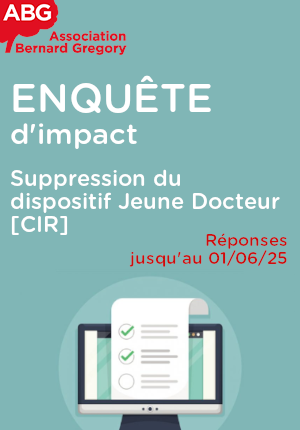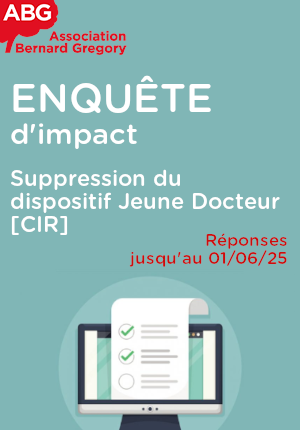PhD in chemistry (M/F) – Harnessing energy with renewable organic batteries
| ABG-132285 | Thesis topic | |
| 2025-05-28 | Public funding alone (i.e. government, region, European, international organization research grant) |
- Chemistry
Topic description
The HEROBAT project aims to address the challenges of the energy transition by developing calcium-based organic batteries, a promising alternative to lithium-based systems, thanks to calcium’s abundance, safety, and redox potential. The project focuses on designing organic cathode materials that are renewable and have a low carbon footprint, a class of materials that is currently nonexistent for calcium-ion batteries.
This research relies on a multidisciplinary approach, drawing on expertise in organic chemistry, materials chemistry, solid-state electrochemistry, and the design of small cell prototypes. It is part of an international collaboration between Nantes Université (NU) and the Université Catholique de Louvain (UCLouvain), under the co-supervision of Prof. Poizot and Vlad, both internationally recognized for their contributions to organic battery research.
The binational doctoral program spans four years, with two years spent at each institution. The selected candidate will benefit from rigorous scientific and professional supervision, along with a comprehensive training program including transversal skills (ethics, AI, innovation, etc.), international seminars, and active involvement in science communication. The selection process will adhere to European standards (HRS4R), ensuring transparency and fairness.
HEROBAT addresses a strategic need in the field of sustainable batteries: the development of efficient positive electrodes (cathodes) for calcium-based batteries, a safer, more abundant, and environmentally friendly alternative to lithium-ion batteries. To date, no viable cathode materials exist for calcium-ion systems. HEROBAT therefore aims to develop a new generation of renewable organic cathodes, synthesized following green chemistry principles and potentially using bio-based resources.
The project aligns with the priorities of the “Industry of the Future” roadmap of the I-site NExT (Nantes Excellence Trajectory) and contributes to the energy transition through innovation in low-carbon materials. It adopts an interdisciplinary approach combining organic materials synthesis, electrochemistry, materials science, and lab-scale pouch cell prototyping. HEROBAT also represents an international doctoral training initiative, involving mobility, joint supervision, and skills transfer.
Sustainability is embedded at every stage of HEROBAT: eco-conscious design, material recyclability, use of soft processes, and avoidance of toxic substances. The project aims to deliver durable batteries compatible with a circular economy. It also serves as a model of European scientific cooperation between Nantes Université and UCLouvain, with strong academic and industrial impact potential.
Starting date
Funding category
Funding further details
Presentation of host institution and host laboratory
HEROBAT will benefit from a high-level scientific environment supported by two leading research institutes: the Institut des Matériaux de Nantes Jean Rouxel (IMN/UMR 6502 - CNRS/NU) and the Institute of Condensed Matter and Nanosciences (IMCN), through the Vlad Energy Group at UCLouvain.
The doctoral researcher will have access to advanced technological platforms at both sites for organic synthesis, structural characterization of materials (PXRD, FTIR, Raman, ICP-OES, …), and electrochemical investigations (operando testing, redox mechanism analysis). Cell prototyping will be conducted in Nantes using in-house expertise in pouch cell assembly.
An interdisciplinary training program (ethics, innovation, AI, open science, access to the Graduate Programme « E-Mat » Winter School, etc.) will be available to the candidate. The project includes funding for international mobility, enabling research stays at both institutions. Lastly, the doctoral student will benefit from close supervision by two leading experts, experienced research teams, and frequent interaction with fellow researchers and PhD students involved in related projects.
Institution awarding doctoral degree
Candidate's profile
Candidates will have to submit the following documents:
- Detailed and updated CV
- Cover letter
- Transcripts of the grades and rankings of the Master’s degree or engineering degree (for semesters for which grades are available)
- Letter of appreciation from the direct supervisor of the Master’s research internship (mandatory for the 2nd year of the Master's degree, if applicable for the 1st year)
Vous avez déjà un compte ?
Nouvel utilisateur ?
Get ABG’s monthly newsletters including news, job offers, grants & fellowships and a selection of relevant events…
Discover our members
 MabDesign
MabDesign  ONERA - The French Aerospace Lab
ONERA - The French Aerospace Lab  ADEME
ADEME  ANRT
ANRT  Laboratoire National de Métrologie et d'Essais - LNE
Laboratoire National de Métrologie et d'Essais - LNE  SUEZ
SUEZ  Tecknowmetrix
Tecknowmetrix  Ifremer
Ifremer  CASDEN
CASDEN  Groupe AFNOR - Association française de normalisation
Groupe AFNOR - Association française de normalisation  Aérocentre, Pôle d'excellence régional
Aérocentre, Pôle d'excellence régional  CESI
CESI  MabDesign
MabDesign  PhDOOC
PhDOOC  Nokia Bell Labs France
Nokia Bell Labs France  ASNR - Autorité de sûreté nucléaire et de radioprotection - Siège
ASNR - Autorité de sûreté nucléaire et de radioprotection - Siège  Généthon
Généthon  Institut Sup'biotech de Paris
Institut Sup'biotech de Paris  TotalEnergies
TotalEnergies








